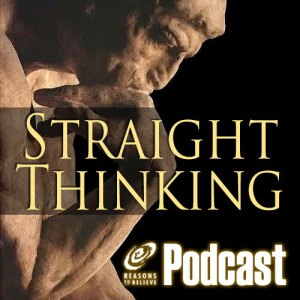WANTED: Thinking Christians
Critics of Christianity often assert that believers have both “soft hearts” and “soft heads.” Or, worse still, in the words of outspoken atheist Richard Dawkins, “hard hearts” and “soft heads.” Unfortunately, too many quarters of the evangelical church today provide regrettable examples of anti-intellectualism. Some Christians fail to appreciate the value of, and need to, love God with their entire being—and that includes God’s incredible gift of the human mind.
The United Negro College Fund’s provocative motto is “A mind is a terrible thing to waste.” Christians could understand this as “A mind made in the image of an infinite, eternal, and tri-personal God is all the more a terrible thing to waste.”

My podcast, Straight Thinking, is intended as an antidote for the paralysis known as “Christian nonthink.” Each episode begins with a brief “logic lesson” in which I explore principles of rational thinking and expose fallacies that serve to undercut cogent reasoning. The second portion of the program then applies these logical principles by examining various philosophical, theological, and cultural topics relevant to believers today.
It is my hope that Straight Thinking will help Christ’s followers become known for expressing empathy with “soft hearts” and thinking critically with “firm heads.”
_________________________________________________________
This article originally appeared in 2009 March/April Reasons newsletter. You can visit reasons.org/resources/publications to see back issues and for information on how sign up to receive Reasons in the mail for free.





